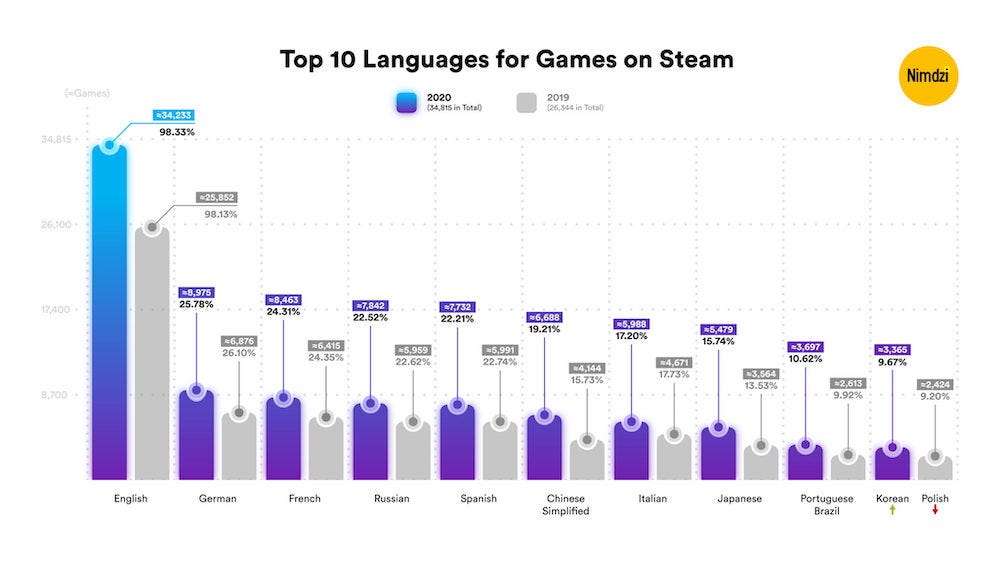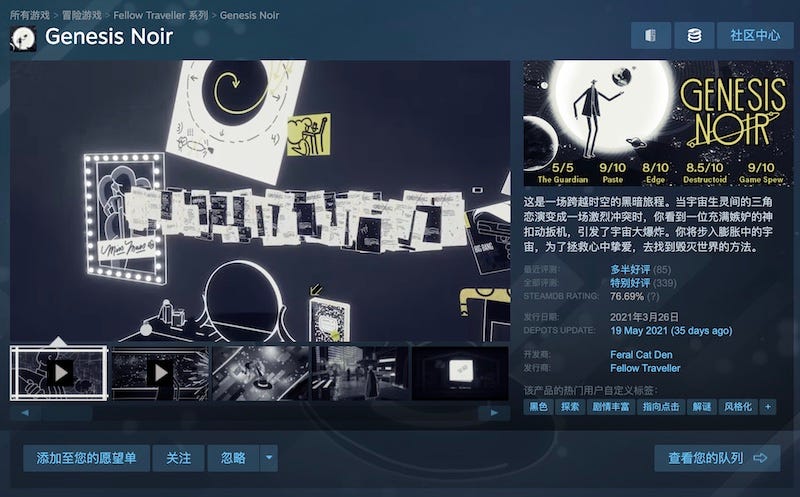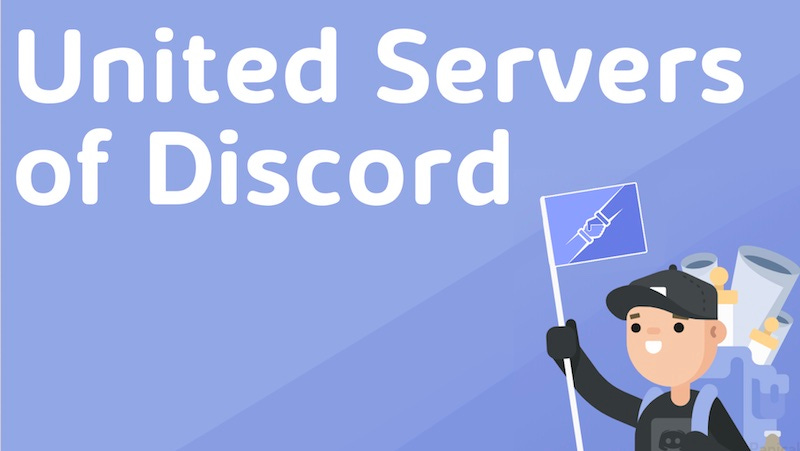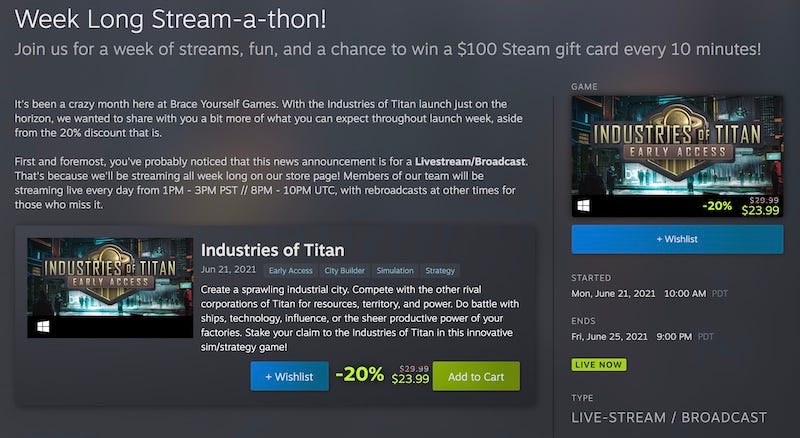[The GameDiscoverCo game discovery newsletter is written by ‘how people find your game’ expert & GameDiscoverCo founder Simon Carless, and is a regular look at how people discover and buy video games in the 2020s.]
A non-sequitur to start today’s newsletter: I love about the premium PC/console game industry in 2021 is that any game can be a hit. I mean it. Check out Cruelty Squad on Steam - an immersive sim with a completely bizarre aesthetic, but gameplay depth galore. One of the recent Steam reviews says the player has “personally been mostly just collecting organs and… doing the stock market.” Uh, what?
Anyhow, this game just went 1.0, and Steam250 estimates its net revenue (using GameDiscoverCo-calibrated estimates) somewhere between $300k and $900k - and median sales of 60,000 units. And it’s only been out for 6 months. I love the market that creates hits like this, and you should too. So let’s get to looking at that darn market…
Localization & discovery - some angles to consider

So, it turns out localization is a really important part of game discovery, since it opens up so many new potential markets for your PC/console games. How does localization and discovery interact? Well, for example - the Chinese market is massive on Steam.
If your game isn’t translated into Chinese, most of the millions of Steam players in China won’t even see it as a default game in their Steam store. (Another way to look at it: if you do a Chinese translation, it’s like you’re competing in a different Steam store with 6,000 games instead of 34,000. Sounds like a good idea, right?)
Anyhow, above is a handy graph compiled by Nimdzi Research last year, crunching the numbers across all Steam games in 2019 and 2020 to see which languages are moving up or down. And it can be quite dynamic - Nimdzi noted that “the proportion of Russian (which outpaced Spanish) and Simplified Chinese (which outpaced Italian) [games] increased, and Korean pushed Polish out of the top 10.”
So whether you’re a tiny indie or a massive company, how should you think about localization with regard to discovery? Here’s some key points:
Try to get localization into your discovery story as early as possible: don’t just jam in localizations and tick the Steam page boxes at the last minute! Translate your Steam pages for launch, and even make translated versions of your Steam demos/Next Fest showcases for maximum reach. It can make a big difference.
Move away from those historic ‘EFIGS’ trends: it used to be that you would translate your game into EFIGS - English, French, Italian, German, and Spanish - and then be done. But the added reach - on PC in particular - of adding other languages (particularly Chinese!) has become incredibly important in recent years. Don’t start with EFIGS.
Think carefully about cost/benefit for text heavy games: if you’re using professional translation for games with tens of thousands of words of text, your costs might get into six figures (USD!) if you do a lot of translations. So you do need to think: how many more copies am I selling with this extra language, and am I taking into account ‘gross to net’ when working out the upside?
Consider using crowdsourced translations - but beware pitfalls: you can read this ‘how to’ from Krumit’s Tale on crowdsourced translations, in this case using Localizor. And if you’re running with a low budget or want some very exotic languages supported, it’s worth considering it. But you ‘get what you pay for.’ A smaller game may not get any translation interest at all. And when you do get helpers, sometimes the translations are Google Translate quality, sometimes they’re OK. And it’s difficult to work out which, until you show the public…

Finishing off this section with some comments from practitioners: Chris Wright, head of wondrous narrative publishing label Fellow Traveller, said his company prioritizes localizing to languages “that open up markets of size that we might not otherwise have done well in or been able to launch in”.
Of course, he does also have French and German language versions of his games (like Genesis Noir, shown above in Simplified Chinese). But the top ‘bang for the buck’ for languages, in his view, are as follows:
Simplified Chinese
Japanese, if it's also on Switch (opens up the Japanese market.)
Traditional Chinese, if it's also on Switch (opens up the Taiwan/Hong Kong store.)
Russian
Brazilian Portuguese
Chris particularly noted that Chinese localization (and local PR help) took some of his catalog from 5% or less of units in China sold to 20% or more. (Though obviously there’s a cheaper USD-equivalent price and more Steam refunding in China.)
Also weighing in on this when it was discussed in the GameDiscoverCo Plus Discord (we got permission to reprint their comments, btw) was Tim Bender of strategy publisher Hooded Horse. He has been analyzing Steam wishlist rates, comparing a) rates prior to the announcement of localization, and b) rates after the announcement of localization and a localized Steam page was uploaded.
He notes, across a couple of games in his catalogue: “For languages like French and German, my estimates are that 60-65% of ‘post announcement’ wishlists in that country would have occurred anyway. So 35-40% of the ‘post announcement’ wishlists were because of the localization. Theerefore, localization caused around a 50% country-specific increase in wishlists.
Elsewhere, looking at Spanish, slightly over half of wishlists were because of the localization. So that’s a little over 100% increase in wishlists. And for East Asian languages, over 90% were because of the localization.”
So that’s further indication that things aren’t as simple as ‘where does a platform have the most users? Localize there!’ It’s also about maximizing discovery in those areas of the world where there’s less English speakers - your post-localization sales increase may be larger. Which is why localization choices are trickier than you think…
Discord: server alliances for the win?

Recently, I’ve been talking with Stephen ‘MrGameTheory’ Takowsky over at 505 Games, who compiles the ‘top Discord server’ charts we’ve discussed a couple of times. But he also has an interesting new project - the United Servers Of Discord ‘club’ for some of the top video game-related Discords. (Here’s a presentation introducing it.)
As Stephen explains: “The Alliance creates joint events that promotes communities in other communities 3+ times per day. This is a massive cross pollination effort among some of the largest communities on Discord. The largest Roblox, League of Legends, and Animal Crossing communities are involved. There are official communities like Terraria, Spellbreak, Nookazon, and Dying Light who have joined with their official community teams.”
Couple of takeaways, here - firstly, if you have a Discord with at least 10,000 members, you can potentially join up with the Alliance to discuss best practices in a shared private Discord server, and also do joint events on your own servers. (And if you have at least 100,000 members, you can participate in their events without being an Alliance member.)
As for these cross-server events, there have been trivia contests using Discord bots, a cross-server chat, and on Saturday June 19th, Stephen noted that “we began our next big alliance event, a Summer-themed art event. Members of all participating servers can submit and vote on the winners. This is a great way for communities to create UGC and display their brands and talented artists within other communities.”
Even if you’re not large enough to join up with these bigger Discord cross-server advances, which include leaderboards, stats, and seasons between Alliance servers, it’s really good ‘food for thought’ as to clever, interactive ways to make your game’s Discord come alive. (One of the Discords I’m in just added the Groovy bot in a channel for shared Spotify playlists, for example!)
Finally, Stephen is also getting even further into Discord experimentation and self-government (!) with the Discord server for the town-building action RPG Eiyuden Chronicle, as he explains:
“We are calling it the Eiyuden Chronicle Republic, and its governing body is the tens of thousands of Kickstarter backers of the project. They have access to private channels on Discord where they can suggest, discuss, and vote on community policies [focusing on] community events, prizes, flags, apparel, and membership pins. Guess you can call all of this the ‘Rise of Game Community Governments’?” That should be.. interesting, to say the least!
The game discovery news round-up..

There was an unfortunate incident with an underground water pipe (and subsequent late-night construction noise!) near GameDiscoverCo HQ. This means we’re not exactly running on all cylinders today.



































